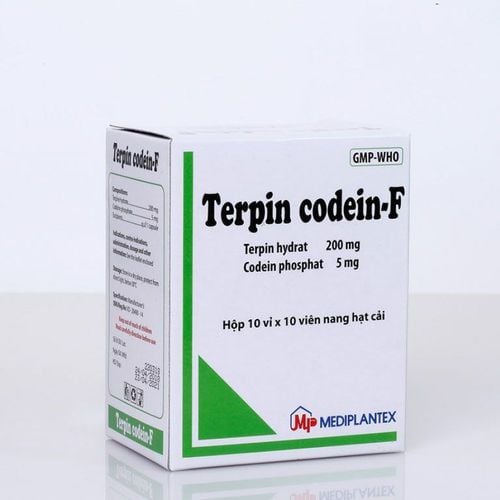This is an automatically translated article.
Meconium is a dark green color produced in the intestines of the fetus. After birth, a newborn will pass meconium for the first few days. However, the pressures your baby goes through before or during birth can cause your baby to pass meconium while still in the womb. This meconium then mixes with amniotic fluid, causing the baby to inhale the mixture of meconium and amniotic fluid into the lungs just before, during, or shortly after birth. This condition is known as meconium aspiration syndrome (MAS).1. Is it dangerous for babies to inhale meconium?
Meconium aspiration syndrome (MAS) is defined as severe respiratory distress in an infant born in meconium-tainted amniotic fluid. The frequency of neonatal inhalation of meconium accounts for nearly 9-25% of live births. Nearly 5% of babies born with meconium-stained amniotic fluid will develop meconium aspiration syndrome (MAS) and nearly 50% of these babies require mechanical ventilation.
Factors affecting the secretion of meconium by the fetus in the uterus include: placental anemia, pregnant women with pre-eclampsia, pregnant women with high blood pressure, oligohydramnios, mothers who smoke, especially tobacco. cocaine. Inhaling meconium before or during delivery can block the airways, interfere with gas exchange, and cause severe respiratory distress.
Manifestations of meconium aspiration pneumonia are babies born with large stature, covered with meconium, and oropharyngeal filled with meconium amniotic fluid. Newborns with amniotic fluid asphyxiation have symptoms of respiratory failure, rapid breathing, difficulty breathing, whining, cyanosis, apnea... Slow heart rate, decreased muscle tone, severe asphyxia, and clinical death.
2. Complications of meconium aspiration syndrome
Meconium in the lungs can cause inflammation and infection, also known as meconium aspiration pneumonia. Meconium can also block the airways, causing the lungs to enlarge. If the lung enlarges too much, it can rupture or fail. Then, air from inside the lungs can accumulate in the chest cavity and around the lungs. This condition, called a pneumothorax, makes it difficult to regenerate the lungs. Pneumothorax accounts for 15% to 30% of all neonates with meconium aspiration, especially those on mechanical ventilation with air trapping. Aspiration or drainage is needed in these babies.

Hội chứng hít phân su ở trẻ sơ sinh có thể gây ra nhiều biến chứng nguy hiểm
Meconium aspiration syndrome increases the risk of neonates with persistent pulmonary hypertension. High blood pressure in the pulmonary blood vessels will restrict blood flow and make it difficult for your baby to breathe properly. Pulmonary hypertension in infants is a rare but life-threatening condition. Persistent pulmonary hypertension in neonates accounts for one-third of meconium aspirated infants. Although meconium aspiration syndrome is not usually life-threatening, it can cause significant health complications for infants. In particular, if this syndrome is severe or untreated, it can be fatal for the child. In rare cases, severe meconium aspiration syndrome can restrict oxygen to a child's brain, causing permanent brain damage, up to 20% of children may have neurological problems. Reduced lung function: 5% of children survive but depend on oxygen until 1 month of age. Abnormal lung function: including increased functional residual capacity, high frequency of pneumonia. Children who breathe in meconium meconium and have to breathe oxygen for a long time have an increased risk of chronic lung disease, increased airway sensitivity (prone to developing asthma, pneumonia), mental retardation, and deafness.
3. Doctor's recommendation
Although inhalation of meconium in infants is a scary event for parents, most cases are not serious. Careful monitoring and timely treatment will help limit the severity as well as the sequelae. High-risk pregnancies such as: intrauterine growth retardation, old age, preeclampsia, high blood pressure, chronic cardiopulmonary disease... should be closely monitored during pregnancy and during delivery. Good pregnancy management and obstetric care to reduce the rate of preterm birth. Monitor fetal heart rate to detect fetal hypoxia in women with meconium-stained amniotic fluid. For pregnant women ≥ 41 weeks, intervention is often recommended rather than monitoring.
Please dial HOTLINE for more information or register for an appointment HERE. Download MyVinmec app to make appointments faster and to manage your bookings easily.













